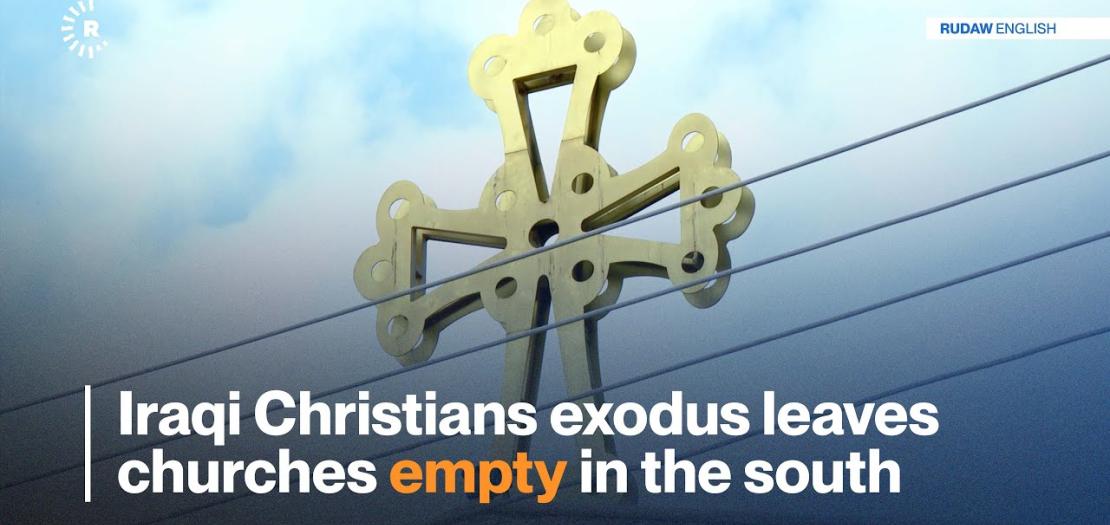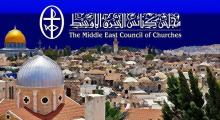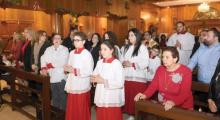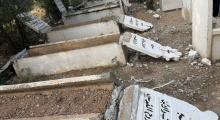Issued by the Catholic Center for Studies and Media - Jordan. Editor-in-chief Fr. Rif'at Bader - موقع أبونا abouna.org

The majority of churches in Iraq’s southern oil-rich Basra lie empty as 80 percent of Assyrian, Chaldean, and Syriac Christians who had originally lived in the province have migrated either to the Kurdistan Region or abroad in search of a more secure and prosperous life.
Basra province was once home to a significant Christian minority, with over 7,000 families calling it home. That number has significantly dwindled to 350, according to data from the Basra Churches Council.
“There are threats. That is why Christians migrate. Whenever there is an opportunity, they do not miss it and they leave,” Aram Sabah, head of the Chaldean Archdiocese of Basra and southern Iraq, has told Rudaw, attributing the migration to a set of reasons including marginalization and lack of security.
“There are many reasons that lead to Christian migration. When there is a weak law in place, or your rights are not given and you are considered a third-class citizen, you will migrate abroad whenever you see an opportunity,” Sabah said. “It hurts us a lot. A large number of Christians have migrated due to threats to their lives, marginalization, lack of rights, insults, and even death threats.”
Of 17 churches in Basra, nine are shut and two others burned down. Residents of Basra are angry at the mass exodus of the Christians and ask them to return to the province.
“There is no ethnic discrimination in Basra in general. It does not matter whether you are a Sunni, a Shiite, or a Christian. I ask all Christians to return to the province of Basra, because there is peace and security here,” Habeeb Saadun, an elderly resident of Basra said.
Abbas Ali, another inhabitant of Basra said “We hope they will return to their country, because this country is theirs as well. Thanks be to God, the security has been stable recently.”
Sajjad Abdul Hussein, a taxi driver, for his part, said “We do not discriminate against anyone. We are all brothers and united. There must not be discrimination against any side.”
Iraq’s Christian community has been devastated in the past two decades. Following the US-led invasion in 2003, sectarian warfare prompted followers of Iraq’s multiple Christian denominations to flee, and attacks by ISIS in 2014 hit minority communities especially hard.
Fewer than 300,000 Christians remain in Iraq today, according to data obtained by Rudaw English from Erbil’s Chaldean Archbishop Bashar Matti Warda in 2022.







